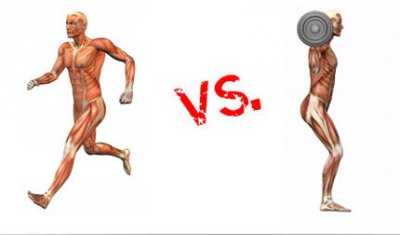Nelson Vergel
Founder, ExcelMale.com

Med Sci Sports Exerc. 2014 Feb 26. [Epub ahead of print]
20-Hour Growth Hormone Secretory Profiles Following Aerobic and Resistance Exercise.
Abstract
INTRODUCTION:
The pulsatile secretion pattern of growth hormone (GH) is an important parameter of GH action at peripheral tissues and more information is needed on how exercise impacts GH secretion. This study hypothesized that both aerobic and resistance exercise would exhibit dose-response relationships with respect to exercise duration and 20-h post-exercise GH secretion.
METHODS:
Eight healthy men randomly completed five separate, conditions: 1) control (no exercise; CON), 2) a moderate duration (1-hr) aerobic exercise session (MA), 3) a long duration (2-hr) aerobic exercise session (LA), 4) a moderate duration (1-hr) resistance exercise session (MR), and 5) a long duration (2-hr) resistance exercise session (LR). Exercise intensity, diet, sleep and physical activity were strictly controlled during each condition and blood was sampled post-exercise every 20 min for 20 hr and GH secretion parameters were analyzed via cluster and deconvolution analyses.
RESULTS:
Only the 2-hr aerobic exercise bout resulted in a significant amplification of GH secretion as evidenced by increases in GH burst peak amplitude (~100%), basal GH secretion rate (~127%), total GH basal secretion (~120%), total pulsatile secretion (~88%), and total GH secretion (~89%) over the control (i.e. no exercise) condition. GH secretion for the resistance exercise conditions were not different from control.
CONCLUSION:
The fact that the 2-hr aerobic exercise condition resulted in higher energy expenditure than the other exercise conditions could offer a partial explanation for the greater GH amplification due to the metabolic effects that GH exerts in stimulating post-exercise lipolysis. We conclude that extending the duration of aerobic exercise, but not resistance exercise, from 1-hr to 2-hr, significantly amplifies GH secretion over a 20-hr period.















